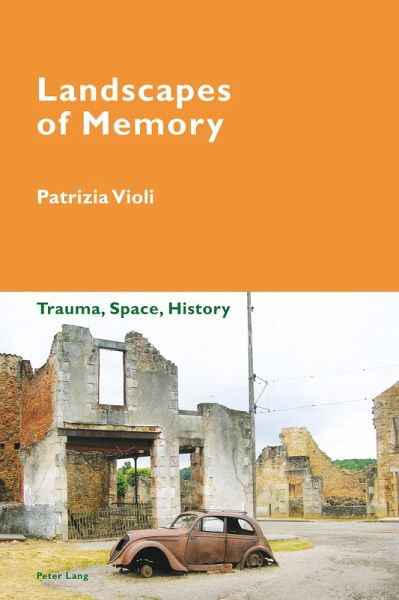
Landscapes of Memory (eBook, PDF)
Trauma, Space, History
Versandkostenfrei!
Sofort per Download lieferbar
Statt: 70,50 €**
48,95 €
inkl. MwSt.
**Preis der gedruckten Ausgabe (Broschiertes Buch)
Alle Infos zum eBook verschenkenWeitere Ausgaben:

PAYBACK Punkte
24 °P sammeln!
Since Auschwitz, and more and more frequently today, places that were theatres of mass suffering and other atrocities are becoming common features of our cultural landscape. What should we do with these places? Keep them as they were, to remind us of what actually took place there, as ideal museums of past evils? Or should we transform them and, if so, into which forms and according to which principles? Which pasts do these places transmit, and how? This volume uses an innovative semiotic methodology to analyse selected key trauma sites. The author demonstrates that these places can become, on...
Since Auschwitz, and more and more frequently today, places that were theatres of mass suffering and other atrocities are becoming common features of our cultural landscape. What should we do with these places? Keep them as they were, to remind us of what actually took place there, as ideal museums of past evils? Or should we transform them and, if so, into which forms and according to which principles? Which pasts do these places transmit, and how? This volume uses an innovative semiotic methodology to analyse selected key trauma sites. The author demonstrates that these places can become, once properly interrogated, privileged observatories capable of throwing light upon the many different conflicts, forms of social control, and power relationships that underlie any politics of memory. The selfsame notions of trauma and memory become, in this way, rewritten in quite a different light: far from any kind of naturalistic definition, they emerge as painful «knots» within which many of the most crucial questions in the contemporary world are intertwined.
Dieser Download kann aus rechtlichen Gründen nur mit Rechnungsadresse in A, D ausgeliefert werden.













